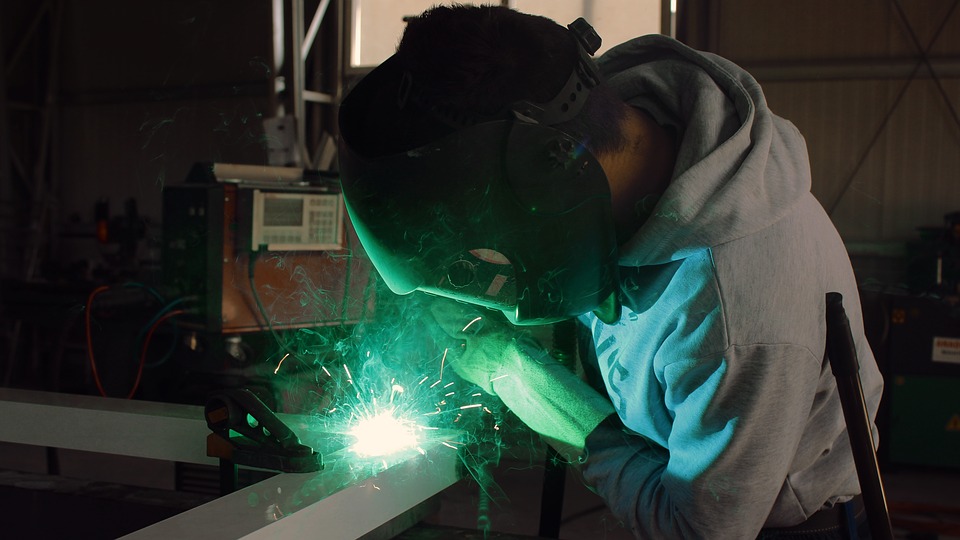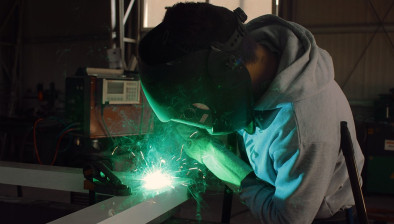UK sees record declines in manufacturing and service sector output as pandemic continues
Widespread business shutdowns at home and abroad in response to the coronavirus pandemic has unsurprisingly resulted in a rapid reduction in UK private sector output during April, according to latest IHS Markit/ CIPS Flash UK Composite PMI.

The data has signalled by far the fastest decline in business activity since comparable figures were first compiled over two decades ago.
At 12.9 in April, down from 36.0 in March, the seasonally adjusted IHS Markit / CIPS Flash UK Composite Output Index – which is based on approximately 85% of usual monthly replies – indicated that the combined monthly decline in manufacturing and services activity exceeded the downturn seen at the height of the global financial crisis by a wide margin. Prior to March, the survey-record low was 38.1 in November 2008.
Around 81% of UK service providers and 75% of manufacturing companies reported a fall in business activity during April, which was overwhelming attributed to the COVID-19 pandemic.
The small minority of manufacturers reporting output growth were mostly involved in medical supply chains or producers of food & drink. In the service economy, there were sporadic reports of growth in April among those with major clients in either online retail or the public sector.
Mirroring the trend for private sector output, the latest survey also signalled survey-record declines in new orders, backlogs of work and employment. Around half of all survey respondents reported lower staffing numbers in April, although there were numerous reports that the fall reflected the use of the UK Government’s furlough scheme.
At 32.9 in April, down from 47.8 in March, the seasonally adjusted IHS Markit/CIPS Flash UK Manufacturing PMI was the lowest since this survey began in January 1992. However, the fall in the Manufacturing PMI since March was softened by a comparatively modest reduction in stocks of purchases and a survey-record lengthening of suppliers’ delivery times.
April data indicated that manufacturing output (index at 16.6) decreased at a slightly slower pace than services activity (equivalent index at 12.3), but the speed of decline was still the fastest since the survey began in 1992 by an extreme margin.
Goods producers overwhelmingly linked lower output to plant shutdowns or reduced production capacity, as well as cancelled orders across manufacturing supply chains following the COVID-19 pandemic.
In manufacturing, the sharpest drop in output was registered in the textiles & clothing sector, largely reflecting collapsed demand from the retail sector, though the transport sector, including car production, also reported an especially steep decline.
The seasonally adjusted IHS Markit/CIPS Flash UK Services PMI Business Activity Index plummeted to 12.3 in April, from 34.5 in March, to signal by far the sharpest reduction in service sector activity since the survey began in July 1996.
Customer-facing service providers often reported a complete shutdown of their business operations in April amid the public health emergency, while a wide range of survey respondents commented on weaker demand following temporary closures among their clients.
Hotels, restaurants and other consumer-facing business reported the steepest drop in output within the service sector, with many firms reporting a total halt in activity.
The least marked downturn was seen in financial services, though even here the scale of the decline was unprecedented, joining all major sub-sectors of services seeing record falls in business activity by wide margins.
Chris Williamson, chief business economist at IHS Markit, said: “The UK economy has been hit by the COVID-19 outbreak in April to a degree far surpassing anything seen in the PMI survey’s 22-year history. Business closures and social distancing measures have caused business activity to collapse at a rate vastly exceeding that seen even during the global financial crisis, confirming fears that GDP will slump to a degree previously thought unimaginable in the second quarter due to measures taken to contain the spread of the virus.
“Record falls in output across both manufacturing and services are being accompanied by job losses on an unprecedented scale, even if furloughed workers are excluded. Pricing power has also collapsed alongside the slump in demand, leading to the largest drop in average prices charged for goods and services ever recorded by the survey.
“The dire survey readings will inevitably raise questions about the cost of the lockdown, and how long current containment measures will last. One ray of light came from an improvement in business optimism about the year ahead compared to the all-time low seen in March, as an increased number of companies saw light at the end of the tunnel. Sentiment about the coming year nevertheless remained the second-lowest ever recorded to underscore how few businesses are anticipating a swift recovery.”
- Read all of our articles relating to COVID-19 here.







